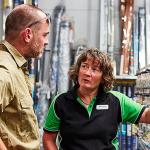What if they’re not OK on ‘R U OK Day’?

Australians who are going to be asking friends, family members and colleagues ‘Are you OK?’ on R U OK Day tomorrow, Thursday 9 September should be prepared for the answer: ‘No’.
Dr Di Stow, President of the Psychotherapy and Counselling Federation of Australia (PACFA) said counsellors and psychotherapists are reporting that in lockdown, pre-existing trauma is rising to the surface and cracks in families that were previously covered over with activity are being laid bare. People are seeking help for anxiety, depression and anger arising from the uncertainty and lack of control related to lockdown.
Counsellors and psychotherapists are increasingly frustrated at the current situation where Australians struggling with their mental health will seek support on R U OK Day but be turned away by psychologists after referrals from GPs.
GPs, particularly in locked-down states, report they cannot find help for their patients through the Better Access initiative because psychologists have waiting lists of 3-6 months, or have closed their books completely.
In the meantime, over 60% of PACFA members responding to a survey said they could take on a new client within a fortnight; 23% said they could take on a new client within 48 hours.
PACFA is advocating for the Federal Government to open up the Better Access initiative beyond psychologists, to counsellors and psychotherapists who are highly-trained, highly experienced mental health professionals. To be a clinical member of PACFA, counsellors and psychotherapists must have – at minimum – a degree and 750 hours of client contact.
Unless potential clients are experiencing severe mental illness, supporting clients through the Covid-19 pandemic is within the scope of practice of counsellors and psychotherapists.
‘Being in a therapeutic relationship with a counsellor or psychotherapist is, by itself, helpful and reassuring,’ Dr Stow said.
‘Often the first step for counsellors and psychotherapists working with clients who are affected by the pandemic is normalising their feelings by letting them know that what they are experiencing is common and understandable.
‘Then counsellors and psychotherapists use their individual approaches to support the client in identifying and nurturing their strengths, skills and resources. In this way, clients may arrive in distress but discover an opportunity for healing and growth.’
An analysis of 60,000 employee assistance program sessions provided by Converge International during 2019 found that counsellors were rated higher than psychologists in helping with clients’ issues, building rapport and understanding the client.








